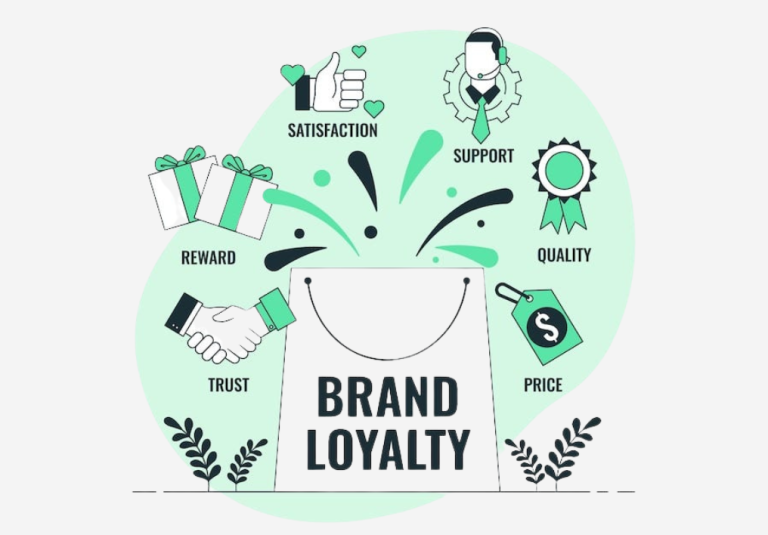Excerpt: Modern consumers are more eco-conscious than ever. Learn how to build brand loyalty through sustainability marketing, leveraging eco-friendly practices and strategies that resonate with today’s mindful shoppers.
Introduction
In today’s marketplace, consumers are increasingly drawn to brands that align with their values, especially when it comes to the environment. Sustainability marketing isn’t just a trend—it’s becoming essential for businesses to connect with eco-conscious consumers and build lasting brand loyalty. As shoppers prioritize products that reflect their commitment to the planet, companies that adopt eco-friendly marketing strategies are reaping the benefits of enhanced customer loyalty and trust.
This article explores practical sustainability marketing tips for modern businesses, showcasing how eco-conscious practices can transform your brand into a customer favorite.
Ready to dive into how sustainability can help your business stand out? Let’s get started!
Why Sustainability Marketing Matters for Modern Businesses
Sustainability marketing is a long-term strategy that aligns your brand with environmental and social responsibility. With over 70% of consumers willing to pay more for eco-friendly products, companies must demonstrate commitment to sustainability. By doing so, you’re not just selling a product; you’re building trust and fostering deeper connections with your audience.
How to Promote Sustainability in Marketing
If you’re wondering how to infuse eco-friendly practices into your marketing strategy, you’re in the right place. Below are a few sustainability marketing tips to get you started:
- Highlight Your Sustainable Business Practices
Consumers want transparency. Clearly showcase your efforts to reduce carbon emissions, minimize waste, or source ethically. Whether it’s eco-friendly packaging or using renewable energy, share these efforts on your website, social media, and packaging. The more you emphasize your green initiatives, the more trust you build with environmentally conscious consumers.
- Emphasize Local and Ethical Sourcing
Highlighting locally sourced, organic, or fair-trade materials can significantly enhance your brand image. Not only does this cut down on transportation emissions, but it also supports smaller, sustainable businesses. Be vocal about the positive impact your supply chain has on the environment and local communities.
- Certifications and Eco-Labels Matter
Gain credibility by obtaining certifications such as Fair Trade, USDA Organic, or Energy Star. Displaying these certifications provides proof of your environmental claims and signals authenticity. Consumers can spot greenwashing (false eco claims) from a mile away, so being certified helps eliminate doubt.
- Use Sustainable Packaging
Another key green marketing strategy is to switch to eco-friendly packaging materials. Many consumers appreciate brands that take extra steps to avoid plastic and choose biodegradable or recyclable materials. Communicating your commitment to reducing packaging waste will make a positive impression on buyers looking for sustainable alternatives.
- Tell Your Brand’s Sustainability Story
Consumers connect with stories, especially when they’re aligned with their values. Share how your brand started, your journey toward sustainability, and the challenges you’ve faced along the way. Let your audience see the human side of your brand—they’ll relate to it more and become loyal advocates.
Building Brand Loyalty Through Eco-Friendly Practices
Building long-term loyalty takes more than just offering eco-friendly products. Customers need to feel like they’re part of something bigger—like their choices are contributing to a sustainable future. Here’s how you can foster that connection:
- Engage Consumers with Sustainability Initiatives
Show your customers how they play a part in your brand’s sustainability mission. Create campaigns or programs where every purchase supports a green cause, such as tree planting or plastic waste cleanup. When customers feel that their spending makes a positive environmental impact, they’re more likely to remain loyal.
- Offer Incentives for Sustainable Behaviour
Encourage customers to make sustainable choices by offering rewards or discounts. For example, give a discount for customers who return packaging for reuse or use refillable products. Offering incentives for environmentally responsible behaviours strengthens your brand’s image and boosts customer retention.
- Consistent Communication on Sustainability Efforts
Keep your audience informed about the steps your company is taking to become more sustainable. Use email newsletters, blog posts, and social media updates to share your progress, whether it’s reducing energy use or achieving a new eco-friendly certification. When you consistently communicate your sustainability efforts, you maintain a relationship of transparency and trust.
Sustainability Efforts to Improve Brand Loyalty
Building a loyal customer base through sustainability marketing requires ongoing effort. Here are a few more practices that can strengthen customer connections:
- Host Eco-Friendly Events: Organize clean-up drives, tree planting days, or sustainability workshops. This not only boosts your environmental efforts but also deepens your connection with customers who care about the same causes.
- Collaborate with Like-Minded Brands: Partner with other eco-conscious businesses to create special, sustainable product lines or campaigns. This collaboration can introduce your brand to new audiences and reinforce your green message.
- Leverage User-Generated Content: Ask your customers to share their stories about how they’re contributing to sustainability, using your eco-friendly products. This adds authenticity to your brand message and creates a community around shared value.
Overcoming Challenges in Sustainability Marketing
While sustainability marketing offers many benefits, it’s not without challenges. One common hurdle is overcoming perceptions of greenwashing. To avoid this, ensure that all your eco-friendly claims are backed by action and results. Transparency is critical, and brands that are open about their processes (and even areas they’re working to improve) are seen as more trustworthy.
Another challenge is the potential upfront costs of transitioning to more sustainable practices. However, in the long run, this investment often leads to savings (like energy efficiency) and an increase in brand loyalty, ultimately offsetting the initial costs.
Final Thoughts: The Long-Term Benefits of Sustainable Brand Strategies
Incorporating sustainability marketing into your business not only helps the planet but also fosters deep customer loyalty. When consumers see that your company genuinely cares about the environment, they are more likely to trust and stick with your brand.
By focusing on eco-friendly marketing strategies like sustainable packaging, transparency, and engaging consumers in your sustainability efforts, you can create lasting relationships with your audience. Building a brand that’s rooted in sustainability is a win-win—it’s good for the planet, good for your customers, and good for your business.
Ready to elevate your business with sustainable marketing strategies? Contact Websoft Techno today. Visit our website at https://websofttechno.com/, call us at +91 9922442272 or +91 9850944480, or drop by our office at Office No 301, Third Floor, Ganga Collidium Phase 1, Ganga Dham Chowk, Market Yard, Pune – 411037. Let’s grow your business together.

